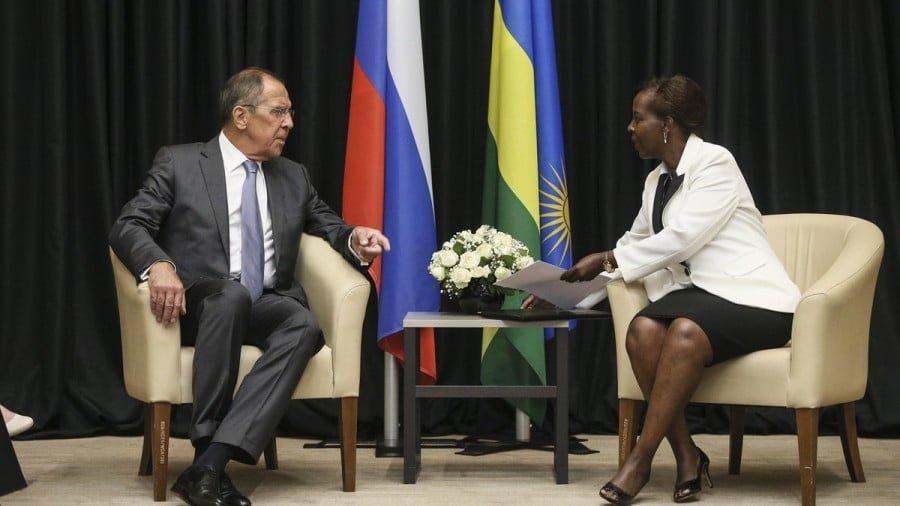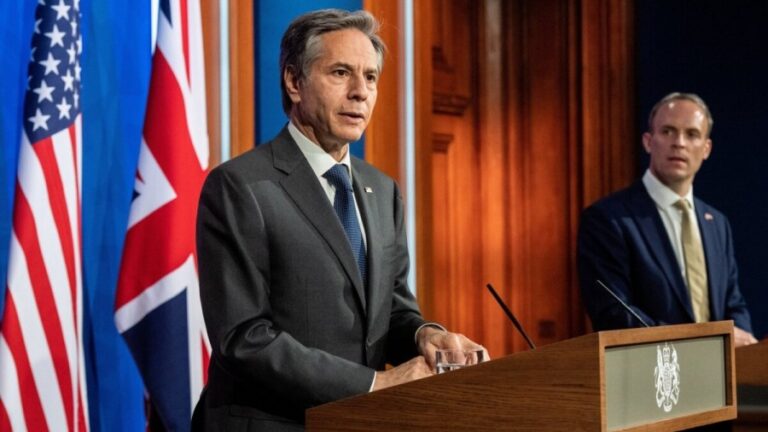US, China Defense Ministers Meet on the Sidelines of the 9th ADMM-Plus Forum
The results of the meeting between Chinese leader Xi Jinping and US President Joe Biden, which took place on November 14 on the sidelines of the G20 summit, have been given different evaluations. By official representatives of both countries and independent commentators alike. Which is natural, since, despite the highest level of representation of the negotiators, several important factors of uncertainty are outside their competence, which cannot but influence the development of bilateral relations in the near future.
Among them, we will mention only the (possible) retake of the lower house of the US Congress by the Republicans. If in relation to Russia the position of the latter group can (for the time being, and also very conditionally) be designated as “uncertain”, then the very word “China” evokes in them completely “certain” and sharply negative emotions, which two years ago, under the previous White House administration, resulted in specific anti-Chinese political rallies. Their main initiator was the then Secretary of State M. Pompeo (by the way, a possible candidate in the election of the next US president) who even today, being outside civil service, is behaving very defiantly towards Beijing. For instance, in terms of the Taiwan issue.
Under such conditions and other uncertainties, a legitimate question arises: what, in fact, in practical terms, can any publicly announced result of the just-held meeting (even) of the leaders of the two main participants in the current stage of the “Great World Game” mean? Generally speaking, at least the resumption of direct American-Chinese contacts through various government bodies can be considered a positive development.
One meeting in particular – the meeting of US Secretary of Defense L. Austin and Chinese Defense Minister General Wei Fenghe which took place ten days later in the Cambodian city of Siem Reap – has drawn attention to itself. It was held on the margins of another international event – the 9th ASEAN Defense Ministers’ Meeting Plus (ADMM-Plus) Forum: a regularly held meeting of defense ministers, whose participants are ten ASEAN member states, as well as eight countries that are external in relation to the (sub)-region of Southeast Asia. These include China, the United States, Japan, Russia and several other countries.
One can see no small symbolism in the fact that the said meeting of the defense department heads of the two leading world powers was held in Southeast Asia. First, it is in this sub-region, the northern coastline of which is formed by Taiwan, that the mutual competitive positioning (including military) of China and the United States is playing out in a particularly serious manner. Second, the countries of Southeast Asia get a reason for their own (in theory) independent positioning in the games that the main world players are conducting in their region. It should also be mentioned that before the bilateral US-Chinese meeting of the defense ministers, both of them took part in the work of the above-mentioned ADMM-Plus forum.
However, there is nothing particularly interesting in the “Joint Declaration”, which is understandable, since this document was signed by two tough competitors. Therefore, its formulations must inevitably be of a fairly general nature.
A totally different matter is the speeches at this forum by L. Austin and Wei Fenghe, as well as assessments in the US and China of the results of the bilateral meeting that took place immediately after. These speeches deserve attention, if only because of the global importance of both participants, on whose behalf the ministers spoke. The content of such speeches did not need to be agreed with the adversary.
But again, meetings of this kind are held not with the aim of expressing any criticism to the adversary, but so that the other side could at least listen until the end to your vision of the problems and proposed approaches to resolving them, which cannot but be reflected in the content of what is said in the face of a tough opponent.
The speech by Chinese Defense Minister General Wei Fenghe reproduces all those main positions regarding the issues of ensuring security (both nationally and globally), which this year were contained in the program speeches of the Chinese leader at the Boao Forum for Asia (held in April) and, most importantly, at the 20th Congress of the CPC.
At the Boao forum, the “Global Security Initiative” was proposed, which was also mentioned in the discussed speeches by Wei Fenghe. The central thesis implies the comprehensive approach of the Chinese leadership to the problem of ensuring security, which excludes infringement on the interests of other countries, but also includes reliance on the available defense potential. With the help of which the readiness to “defeat any enemy” that encroaches on the “own interests” of China shall be triggered. The latter words are clearly dedicated to the Taiwan issue which has become the main focus of American-Chinese confrontation in recent years, including in the military sphere.
Against the backdrop of a rather detailed presentation by the Chinese Defense Ministry of its boss’s speeches at the above-mentioned events, the reticence of commentary on the presence of L. Austin by the US Department of Defense attracts particular attention. In fact, everything was limited to stating the fact of his trip to Cambodia, his participation in the events held there and the designation of North Korea, Myanmar and Russia as the “bad guys”. His meeting with the Chinese Defense Minister is simply mentioned among other bilateral negotiations in which L. Austin’s interlocutors were counterparts from Vietnam, India and the Philippines. Incidentally, this list is not random at all.
It should be noted that, in recent comments on US policy in the region, there have sometimes been suggestions (with reference to undisclosed sources in Washington) that in order to reduce the level of tension in relations with Beijing, it could be possible to reduce the level of provocative behavior of the US military in that region.
However, at the level of the direct executors of American defense policy in the region, that is, the Indo-Pacific Command, things stand as follows: “We will sail (the seas) and fly (in the air) wherever it is not prohibited by international law.” And, according to the authors of such formulations, there are no such prohibitions in the entire space of the South China Sea and in the Taiwan Strait.
In this regard, it should be mentioned that the American-Chinese sword play, which took place on the eve of the events under discussion, was initiated by President Joe Biden on the rather old topic of “the construction of a naval base by the Chinese” in Cambodia. By the way, the foreign policy course of that country can be called pro-Chinese to a certain extent, which is an exception amongst ASEAN member states.
In connection with the latter, a very important circumstance should be noted: the majority of the coastal ASEAN member countries, such as Vietnam and the Philippines, agree with the above position of the US military regarding the South China Sea (likely by default, but still this stands true).
Japan is behaving more and more decidedly (and with anti-Chinese positions) in the zones of interests intersecting with China. This can be seen most clearly in Southeast Asia. In June, the capital of Cambodia hosted a meeting between the former Minister of Defense of Japan Nobuo Kishi and his ASEAN counterparts. Incidentally, Nobuo Kishi recently resigned and this deserves separate commentary. The final document signed by both sides can be found here.
As for the Taiwan Strait, the confrontational and anti-Chinese behavior of the American military here is also fully supported by Japan. Not to mention the current leadership of Taiwan itself which is not an object-subject of official international relations. The government of South Korea (of any party affiliation), which is in a state of allied relations with the United States, is trying to avoid publicly defining its country’s position on the status of the Taiwan Strait since it is interested in maintaining a generally positive nature of relations with China.
Finally, all of the above provides an opportunity to once again outline the author’s position on the correlation between words (written and spoken) and actions in current politics. Despite the loud (and sometimes menacing) words, it is the actions, of course, that are of real importance.
It is from this point of view that all the documents and speeches initiated during the events discussed here should be evaluated.







